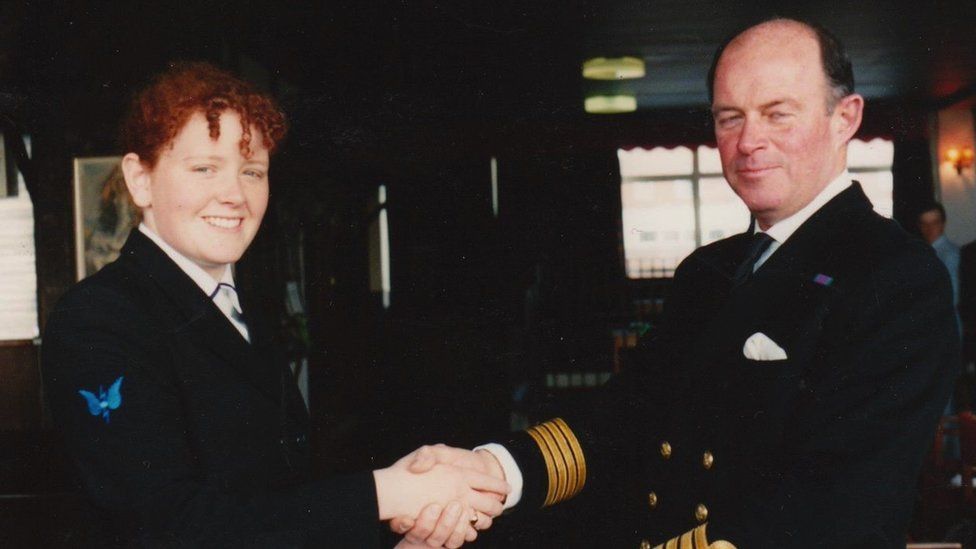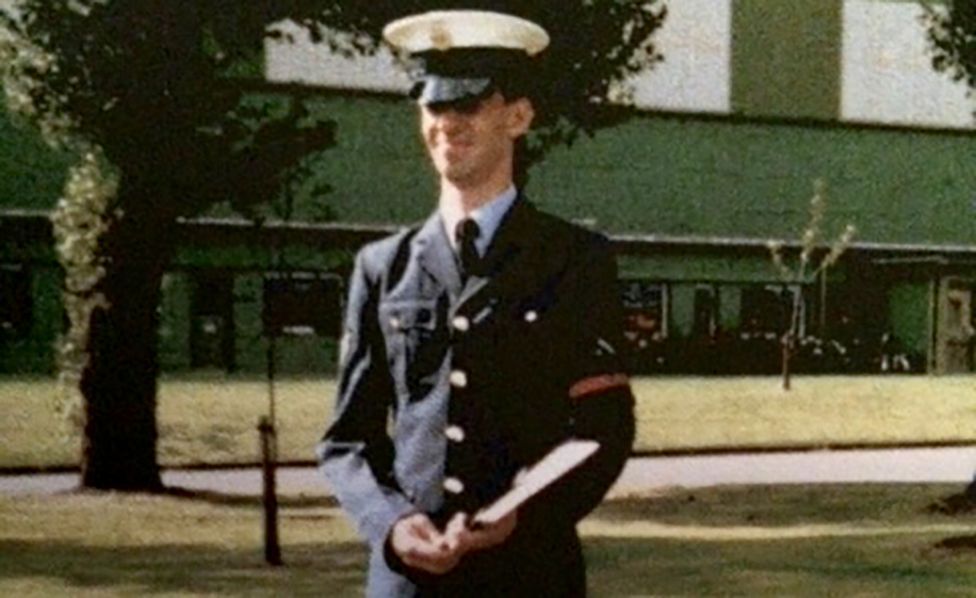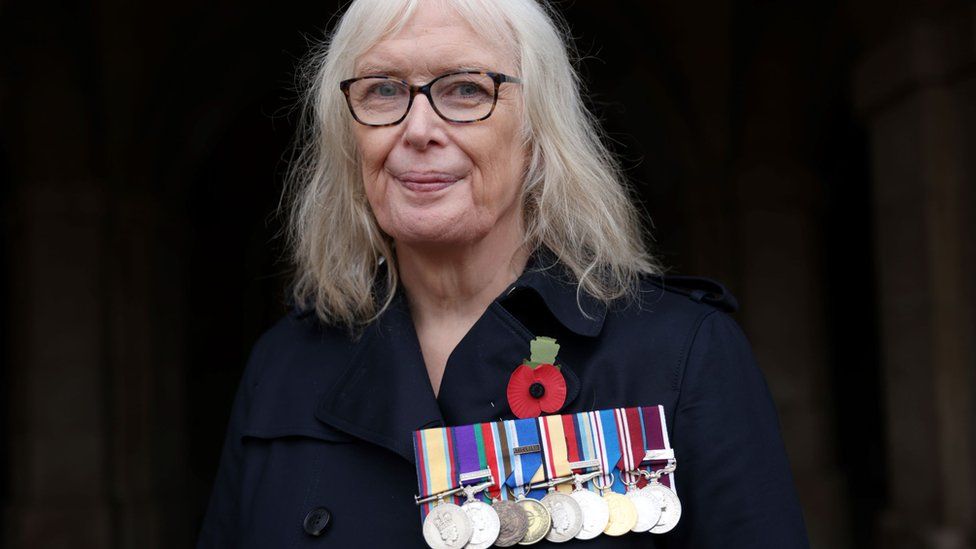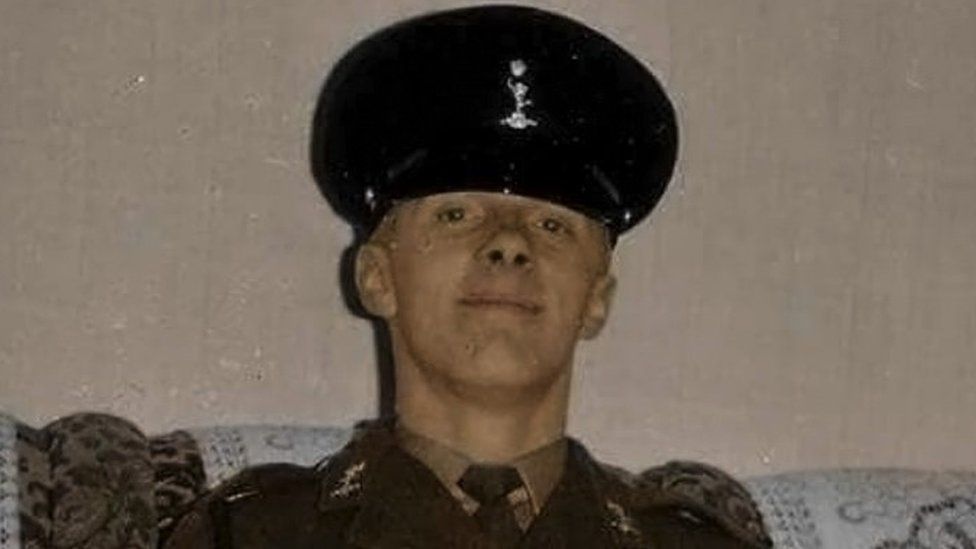Rishi Sunak apologises to UK’s LGBT veterans for past armed forces gay ban

Rishi Sunak has apologised for the historical treatment of LGBT veterans who were sacked or forced out of the military for being gay.
The PM called the ban an “appalling failure” of the British state.
It was illegal to be gay in the British military until 2000 – with thousands of veterans thought to be affected.
A report into their treatment recommended they be given a financial reward and that the PM publicly apologise.
Addressing MPs, the prime minister said: “Many endured the most horrific sexual abuse and violence, homophobic bullying and harassment all while bravely serving this country.”
The LGBT Veterans Independent Review, led by Britain’s first openly gay judge Lord Etherton, began last year and heard about the experiences of 1,145 veterans between 1967 to 2000.
It heard shocking accounts of homophobia, bullying, blackmail, sexual assaults, “disgraceful” medical examinations, and conversion therapy.
It makes 49 recommendations to the government including:
- Affected veterans to be given an “appropriate financial reward” capped at £50 million overall
- The restoration of medals that had to be handed back on dismissal or discharge
- The clarification of pension rights
- The presentation of a special veterans’ badge
The government said it would respond in full after summer recess.
Some of the veterans affected watched the PM’s public apology.
One of them, Emma Riley, 51, was a Royal Navy radio operator for three years before she was arrested and discharged for being a lesbian after telling a colleague her sexuality in the early 1990s.
She told BBC News she welcomed the report, and hoped it would be put into place “swiftly.”
“Having our history, experiences and enormous pain acknowledged and apologised for, hearing that the armed services and government that perpetuated institutional bullying will now be held accountable to finally support LBGT+ veterans, is a relief,” she said.
Veterans have previously told the BBC how their lives were devastated by the ban.
Carol Morgan, who was dismissed after telling her bosses she was gay in 1978, kept her sexuality secret for another 30 years and said she had been “robbed” of her life.

Ken Wright, 62, served in the Royal Air Force Police before losing his job when his bosses found out he was gay.
He described how losing his position in the military had left him feeling as though “his country didn’t want him.”
He added: “After being denied the opportunity to defend one’s country, being told you aren’t good enough to wear the uniform, it takes huge inner strength to feel reconciled all of a sudden today.
“Carrying that insult for 35 years scars you for life.”
The report says many faced invasive medical examinations, intrusive police investigations and in some cases, as recently as 1996, were sent to prison for their sexuality. Many still have a criminal record to this day.
It also details how some veterans faced a complete loss of income, while others were deemed ineligible to claim their pension because of their dismissal.
The report comes more than 20 years after four servicemen and women, who were sacked for being gay, won a case in the European Court of Human Rights and overturned the ban.
Veterans Minister Johnny Mercer said he was pleased with the apology and that it was a “significant moment” for the LGBT community.
This video can not be played
To play this video you need to enable JavaScript in your browser.
Related Topics
- British Armed Forces
- Rishi Sunak
- LGBT
- Veterans
-
LGBT veterans call for PM apology for treatment
-
28 June

-
-
LGBT veterans want military ban report immediately
-
9 June

-
Published at Wed, 19 Jul 2023 12:14:16 +0000
